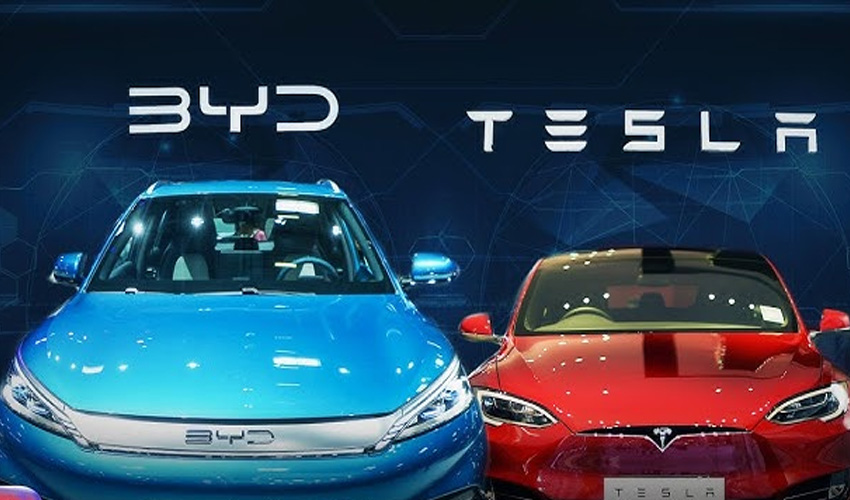The Chinese electric vehicle (EV) maker BYD has continued to gain momentum, closing the gap with Tesla as it aims for the top spot in global EV sales for 2024.
With a notable surge in sales, the company sold 207,734 EVs in December, pushing its total for the year to 1.76 million vehicles.
The December performance came as a result of strategic discounts and government-backed subsidies, which BYD said helped attract a larger customer base. The company’s total vehicle sales jumped by over 41% compared to the previous year, with much of the growth driven by its hybrid car models.
The strong sales figures come just as Tesla is set to release its own quarterly results. While Tesla has traditionally led in the global EV market, BYD has been steadily narrowing the sales gap, fueled by an increase in demand in China, the company’s dominant market, where it holds a 90% share of its total sales.
In the third quarter of 2024, BYD reported revenues exceeding 200 billion yuan ($28.2 billion), a 24% increase from the same period in 2023. This was a significant milestone, as it outpaced Tesla’s quarterly revenue of $25.2 billion.
Despite this, Tesla remains ahead in total vehicle sales, with the American firm still holding a slight lead over BYD in overall EV deliveries.
BYD’s success is largely attributed to the rise in car sales within China, where intensified competition has led to lower prices for EVs, alongside supportive government incentives to encourage the switch from traditional vehicles to more energy-efficient models. However, the company’s growth has also been spurred by its aggressive expansion into emerging markets.

Notably, BYD has faced some challenges in its bid for international market share. In October, the European Union imposed tariffs as high as 45.3% on Chinese-made EVs, making it more difficult for companies like BYD to penetrate the European market. Similarly, the U.S. has levied a 100% duty on EVs imported from China, and further restrictions are expected under President-elect Donald Trump.
Meanwhile, BYD has been increasingly focused on expanding its footprint in developing economies. The company had planned to build a factory in Brazil, its largest overseas market, but faced a setback in December when construction was halted due to allegations that workers were subjected to “slavery-like” conditions. BYD has since severed ties with the construction firm involved and reaffirmed its commitment to complying with Brazilian labor laws.
While BYD’s rise signals a strong shift in the global automotive landscape, it also underscores the mounting pressure on traditional car manufacturers to adapt to the rapidly changing electric vehicle market. Some legacy automakers, such as Volkswagen, Honda, and Nissan, have struggled to keep pace with Chinese EV companies, prompting talks of mergers and plant closures in an effort to remain competitive.
In contrast to the challenges faced by these established firms, BYD’s growth has been a testament to China’s growing dominance in the electric vehicle sector, as it continues to extend its lead over foreign rivals like Volkswagen and Toyota in its home market.



























